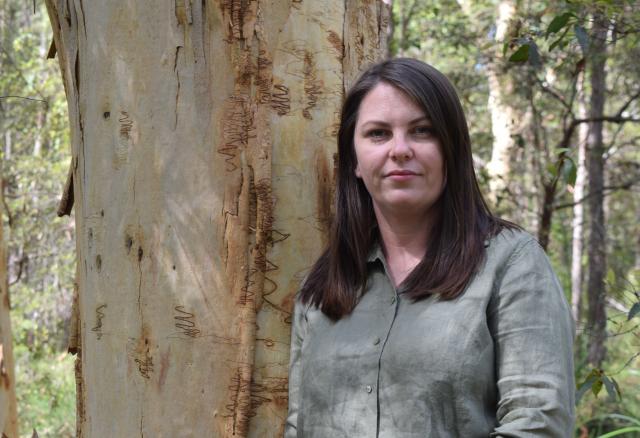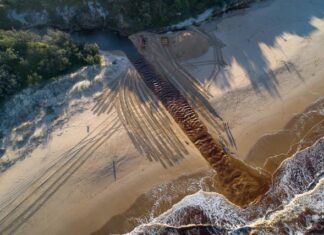While people in Noosa were planting trees on National Trees Day last Sunday the Queensland Government released the latest Statewide Landcover and Trees Study (SLATS) report showing 349,399 hectares of land was cleared during the reporting period of 2020-2021.
The land clearing figures actually showed a decrease of 17 per cent on the 418,656ha which was cleared in Queensland the previous year.
The recent report shows that of the land cleared almost 90 per cent was pasture land (the majority for beef cattle grazing), more than 54,000ha was remnant vegetation and about 47 per cent of clearing occurred in the Great Barrier Reef catchment area.
Queensland Conservation Council nature campaigner Natalie Frost said the report showed that 58,837 hectares of clearing was in areas that should be protected under the state’s land clearing laws, in remnant forest or high-value growth, demonstrating that loopholes continue to allow clearing of forest that the laws were intended to protect.
Queensland is home to a large variety of native Australian species, many of them threatened with extinction. Many of these at-risk species are impacted by land clearing, she said
The Wilderness Society Queensland campaigns manager Hannah Schuch said while it was positive to see Queensland’s land clearing figures decreased during 2020-21, the overall scale of land clearing in the state remains too high to meet climate and biodiversity commitments.
“Analysis from previous years has shown that the majority of land clearing is to make way for beef which is a significant export commodity for Australia.
“It’s good that land clearing figures decreased during 2020-21, as the world is signalling that it’s time to do beef better. Most recently, the EU (European Union) passed deforestation regulations to screen for deforestation risk in imported products like Australia’s beef.
“Australia can seize this opportunity to be at the front of the queue for international market access by stopping the bulldozers from destroying Australian forests and bushlands. This requires stronger laws and enforcement from state and federal governments, as well as corporate action to eliminate deforestation from leading beef retailers’ supply chains.“
Natalie Frost was guest speaker at last week’s Noosa Parks Association Friday forum and despite outlining the large land clearing figures, legal loopholes and poor compliance enforcement was optimistic recent government action and a strengthened environmental alliance would result in changes to legislation and compliance to deliver better biodiversity protection.
“Right now we have so many levers at play with EPBC reforms calling for no new extinctions and the introduction of EU laws,“ she said.
“There’s a lot happening within state government as well with the Native Timber Advisory Panel report and Native Vegetation Scientific Expert Panel report coming out.
“We feel this is that crescendo moment we are going to see those clearing rates driven down but we need to get communities active as well.“
Among state government action was the establishment of the Native Timber Advisory Panel a couple of years ago to look at codes to get better protections, Natalie said.
“The codes in place aren’t protecting the wildlife. We’re pushing to have codes changed,“ she said.
She said the panel had put forward a report to ministers, but they were still awaiting it to be made public and acted upon.
Early last year the Queensland Conservation Council formed the Queensland Forest Alliance with the Australian Conservation Foundation, WWF Australia and the Wilderness Society, she said.
Now acting as a strengthened alliance it has three major aims to protect 300million hectares of Queensland’s natural forrest and woodlands partly through closing the loopholes in legislation, to ensure 100 per cent of Queensland beef is deforestation free and to remove 100million tonnes of carbon dioxide from the atmosphere through opportunities in the land carbon sector including halting land clearing.
Natalie said the alliance planned to put their views forward in two weeks from 17-19 August when the National ALP conference is scheduled to be held in Brisbane and called on people to talk to their local members.








